Filter by
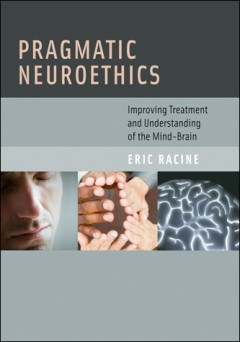
Pragmatic Neuroethics: Improving Treatment and Understanding of the Mind-Brain
A survey of the emerging field of neuroethics that calls for a multidisciplinary, pragmatic approach for tackling key issues and improving patient care.OCLC-licensed vendor bibliographic record.
- Edition
- -
- ISBN/ISSN
- 9780262265904
- Collation
- 1 online resource (xix, 267 pages) :illustrations.
- Series Title
- -
- Call Number
- -
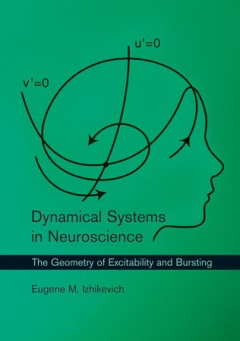
Dynamical systems in neuroscience: The geometry of excitability and bursting
Explains the relationship of electrophysiology, nonlinear dynamics, and the computational properties of neurons, with each concept presented in terms of both neuroscience and mathematics and illustrated using geometrical intuition. In order to model neuronal behavior or to interpret the results of modeling studies, neuroscientists must call upon methods of nonlinear dynamics. This book offers a…
- Edition
- -
- ISBN/ISSN
- 9780262276078
- Collation
- 1 online resource (xvi, 441 pages) :illustrations.
- Series Title
- -
- Call Number
- -

Emil du Bois-Reymond: Neuroscience, Self, and Society in Nineteenth-Century G…
A biography of an important but largely forgotten nineteenth-century scientist whose work helped lay the foundation of modern neuroscience.Emil du Bois-Reymond is the most important forgotten intellectual of the nineteenth century. In his own time (1818-1896) du Bois-Reymond grew famous in his native Germany and beyond for his groundbreaking research in neuroscience and his provocative addresse…
- Edition
- -
- ISBN/ISSN
- 9781461950325
- Collation
- 1 online resource.
- Series Title
- -
- Call Number
- -
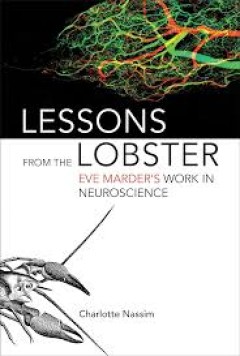
Lessons from the Lobster: Eve Marder's Work in Neuroscience
How forty years of research on thirty neurons in the stomach of a lobster has yielded valuable insights for the study of the human brain.OCLC-licensed vendor bibliographic record.
- Edition
- -
- ISBN/ISSN
- 9780262346016
- Collation
- 1 online resource
- Series Title
- -
- Call Number
- -

The Moral Brain: A Multidisciplinary Perspective
"Over the past decade, an explosion of empirical research in a variety of fields has allowed us to understand human moral sensibility as a sophisticated integration of cognitive, emotional, and motivational mechanisms shaped through evolution, development, and culture. Evolutionary biologists have shown that moral cognition evolved to aid cooperation; developmental psychologists have demonstrat…
- Edition
- -
- ISBN/ISSN
- 9780262327589
- Collation
- 1 online resource (x, 327 pages) :illustrations.
- Series Title
- -
- Call Number
- -
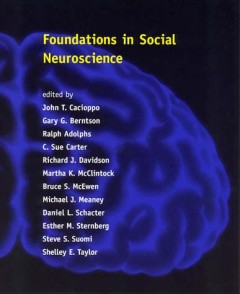
Foundations in Social Neuroscience
"A Bradford book."Annotation A full understanding of the biology and behavior of humans cannot be complete without the collective contributions of the social sciences, cognitive sciences, and neurosciences. This book collects eighty-two of the foundational articles in the emerging discipline of social neuroscience. The book addresses five main areas of research: multilevel integrative analyses …
- Edition
- -
- ISBN/ISSN
- 9780262269674
- Collation
- 1 online resource (xii, 1345 pages) :illustrations.
- Series Title
- -
- Call Number
- -
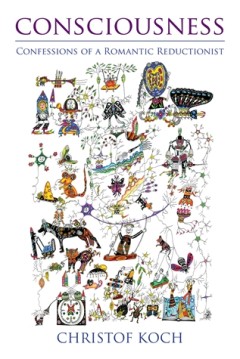
Consciousness :confessions of a romantic reductionist
"What links conscious experience of pain, joy, color, and smell to bioelectrical activity in the brain? How can anything physical give rise to nonphysical, subjective, conscious states? Christof Koch has devoted much of his career to bridging the seemingly unbridgeable gap between the physics of the brain and phenomenal experience. This engaging book--part scientific overview, part memoir, part…
- Edition
- -
- ISBN/ISSN
- 9780262301787
- Collation
- 1 online resource (xii, 181 pages)
- Series Title
- -
- Call Number
- -
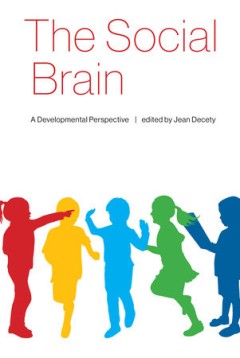
The social brain :a developmental perspective
"This new volume brings together a range of empirical and theoretical views from both developmental psychology and developmental neuroscience, and cover a core set of questions and topics that concern the development of the social mind. The basic topics about the origins, development, and biological bases of the human social mind include, but are not limited to, face and voice recognition, atta…
- Edition
- -
- ISBN/ISSN
- 0262358964
- Collation
- 1 online resource (xii, 426 pages) :illustrations (black and white).
- Series Title
- -
- Call Number
- -

What is addiction?
"The image of the addict in popular culture combines victimhood and moral failure; we sympathize with addicts in films and novels because of their suffering and their hard-won knowledge. And yet actual scientific knowledge about addiction tends to undermine this cultural construct. In What Is Addiction? leading addiction researchers from neuroscience, psychology, genetics, philosophy, economics…
- Edition
- -
- ISBN/ISSN
- 9780262288248
- Collation
- 1 online resource (xi, 448 pages) :illustrations
- Series Title
- -
- Call Number
- -
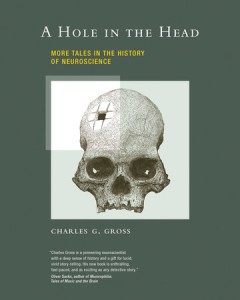
A hole in the head : More Tales in the History of Neuroscience
Essays on great figures and important issues, advances and blind alleys-from trepanation to the discovery of grandmother cells-in the history of brain sciences.
- Edition
- -
- ISBN/ISSN
- -
- Collation
- 1 online resource (x, 356 pages) : illustrations
- Series Title
- -
- Call Number
- -
 Computer Science, Information & General Works
Computer Science, Information & General Works  Philosophy & Psychology
Philosophy & Psychology  Religion
Religion  Social Sciences
Social Sciences  Language
Language  Pure Science
Pure Science  Applied Sciences
Applied Sciences  Art & Recreation
Art & Recreation  Literature
Literature  History & Geography
History & Geography